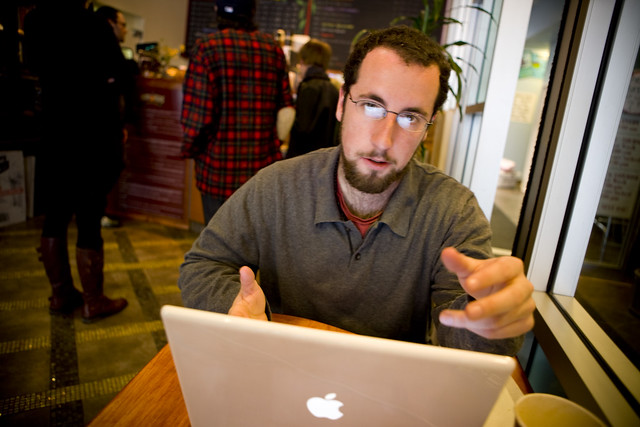Tag: internet
Media, Old and New
Kafr el-Hanadwa forwarded to me this article about the Indian blogosphere. The argument put forward by the writer in this paragraph applies, in my view, to the Egyptian blogosphere:
But one fact internet crusaders omit to mention is that campaigns like these owe a great deal of their success to other, older media. Internet penetration in India is limited to 5-8 per cent of the population, and it is the extensive coverage that newspapers and TV channels give these Net initiatives that has vastly multiplied their visibility and audience outreach.
The number of those who have cyberaccess in Egypt, according to a 2008 government report, reached 9.17 million citizens, out of roughly 80 millions. This is a huge leap from the only 650,000 users we had in 2000. Still, this is a minority in the present time. But just like its Indian counterpart, the Egyptian mainstream media is obsessed with what goes on in the blogosphere. Local media outlets–whether they are Independent, opposition, government owned, or privately run–regularly monitor blogs, Facebook groups, web forums, and report on what goes on for their newspapers, TV and radio stations. Journalists are also hooking themselves up to Twitter and Jaiku to follow what the activists are tweeting and texting about. Many bloggers are also journalists, who have access to the mainstream media and can push for their stories and campaigns to get wider coverage. Of course this means we get on occasions tons of bullshit, negative and sensationalist reporting, but in all cases if a story now goes on some blog, or you launch a campaign on some website, you are more or less assured this will be picked up by journalists in the mainstream media who still have a wider audience than internet surfers.
Live-blogging public talks
A thing Comrade Jack does regularly and was very inspiring to me is live-blogging activist public talks, which I wasn’t necessarily familiar with in Cairo.. But I guess also Jack is helped by the fact that in San Francisco you can usually find an open wi-fi anywhere around activist or community centers.
I think it’s something useful and we need to do in coming activist conferences whenever we can.. say the coming Cairo Anti-War Conference, London’s Marxism, Cairo’s Socialist Days, or what have you. The organizers should do their best to make wi-fi internet access available for participants. This gives the opportunity for activists to live-blog the event, take photos and videos and upload them right away online to share with thousands if not millions of fellow activists around the world.
I don’t think the logistics of it is really difficult, right? Some friends had suggested that already in previous events in Cairo, but none got around to doing it. So, I’m just renewing the call to try to provide cyberaccess whenever we can for the audience. We complain all the time of the lack of media coverage of dissident news.. and while it’s true and has to do with how the mainstream media is structured in the first place, one way to counter that is take on the task ourselves: reporting the event, and spreading the word, image and audio to our increasing audience online. What we need is just a little cheap digital camera, a laptop, and wi-fi cyberaccess. Can the comrades at the Center for Socialist Studies for example try working on that for our future public meetings in the Center? Many of the talks and the discussions we organize, where labor leaders, community activists and others speak, need to be beamed somehow to the cyberspace.. By that we are spreading the word and the image to a wider audience, we can be inspiring others into action based on what they hear and see from the Egyptian experience, and in all cases this is the memory of the class that we are documenting. We need to get the words of Kamal el-Fayoumi, Tarek Amin, Kareem el-Beheiry, Gehad Taman, and all Ghazl el-Mahalla labor activists to a wider audience.
We need to familiarize the world with Mahalla in a much concrete way. What’s better to do? To just write about a 27,000-strong strike, or to write about it accompanied with pictures of the event, and see faces of their leaders, the men and women who did it, with videos of them recalling the events, talking about their personal experiences during that, how that shaped them.
I don’t think it’s nuclear physics to set it up, and I’m sure there are plenty of bloggers around in Cairo and Giza who can give us a hand with the technicalities of the process. Anyways, it’s just a thought.

